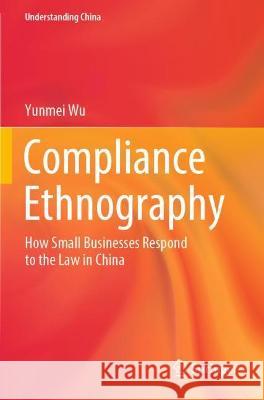Compliance Ethnography: How Small Businesses Respond to the Law in China » książka
topmenu
Compliance Ethnography: How Small Businesses Respond to the Law in China
ISBN-13: 9789811628863 / Angielski / Miękka / 2022
This book explores how small businesses respond to the law. By detailing the intricate ways in which businesses come to comply with or violate legal regulations, it shows a very different picture of compliance that completely changes the way we think about how businesses respond to the law, how we can capture such responses, and what explains their behaviors. The book moves us beyond a static and single-perspective approach to compliance, where firms are seen as obeying or breaking a specific rule at a specific point in time. Instead, it offers a dynamic view of compliance as it manifests in daily business, where firms must comply with a host of legal rules and must do so over a long period of time.
This timely book is especially valuable to three main groups: to compliance practitioners and regulatory enforcement agents, who are increasingly forced to consider how compliance management and enforcement practices actually affect compliance; to regulatory governance scholars (in public administration, law, sociology, and management science), for whom compliance is a central aspect; and to scholars of Chinese law, who realize that compliance is a central challenge that the Chinese legal system must overcome.











